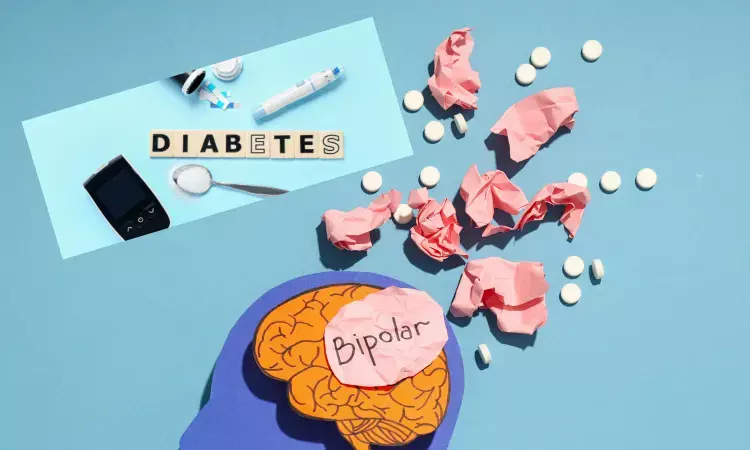- Home
- Medical news & Guidelines
- Anesthesiology
- Cardiology and CTVS
- Critical Care
- Dentistry
- Dermatology
- Diabetes and Endocrinology
- ENT
- Gastroenterology
- Medicine
- Nephrology
- Neurology
- Obstretics-Gynaecology
- Oncology
- Ophthalmology
- Orthopaedics
- Pediatrics-Neonatology
- Psychiatry
- Pulmonology
- Radiology
- Surgery
- Urology
- Laboratory Medicine
- Diet
- Nursing
- Paramedical
- Physiotherapy
- Health news
- Fact Check
- Bone Health Fact Check
- Brain Health Fact Check
- Cancer Related Fact Check
- Child Care Fact Check
- Dental and oral health fact check
- Diabetes and metabolic health fact check
- Diet and Nutrition Fact Check
- Eye and ENT Care Fact Check
- Fitness fact check
- Gut health fact check
- Heart health fact check
- Kidney health fact check
- Medical education fact check
- Men's health fact check
- Respiratory fact check
- Skin and hair care fact check
- Vaccine and Immunization fact check
- Women's health fact check
- AYUSH
- State News
- Andaman and Nicobar Islands
- Andhra Pradesh
- Arunachal Pradesh
- Assam
- Bihar
- Chandigarh
- Chattisgarh
- Dadra and Nagar Haveli
- Daman and Diu
- Delhi
- Goa
- Gujarat
- Haryana
- Himachal Pradesh
- Jammu & Kashmir
- Jharkhand
- Karnataka
- Kerala
- Ladakh
- Lakshadweep
- Madhya Pradesh
- Maharashtra
- Manipur
- Meghalaya
- Mizoram
- Nagaland
- Odisha
- Puducherry
- Punjab
- Rajasthan
- Sikkim
- Tamil Nadu
- Telangana
- Tripura
- Uttar Pradesh
- Uttrakhand
- West Bengal
- Medical Education
- Industry
Treatment of bipolar disorder with valproate and antipsychotics linked to risk of diabetes mellitus

Bipolar disorder is a severe mental disorder with high comorbidity with diabetes mellitus (DM). Specifically, the prevalence of diabetes among individuals with bipolar disorder is estimated to be 9%–11%, corresponding to approximately twice the risk of DM in the general population.
Researcher Christopher Rohde and team aimed to investigate whether treatment of bipolar disorder with lithium, antipsychotics, or antiepileptics is associated with the risk of DM in a real-world clinical setting. The study is published in International journal of Psychiatry and Neurosciences.
Bipolar disorder commonly treated with antipsychotics and antiepileptics have been associated with an increased risk of diabetes mellitus (DM), lithium may have the opposite effect via inhibition of glycogen synthase kinase-3, however valproate and antipsychotics was associated with increased risk of DM in a real-world cohort of patients with bipolar disorder than lithium.
The nationwide study, identified all patients diagnosed with bipolar disorder in Danish Psychiatric Services from January 1, 1996, to January 1, 2019 (N = 30,451). The risk of developing DM was operationalized via hospital diagnoses and redeemed prescriptions for glucose-lowering drugs. For lithium, antipsychotics, valproate, and lamotrigine, they calculated hazard rate ratios (HRR) for developing DM via adjusted Cox proportional hazards models. Potential cumulative dose–response-like associations were examined using the log-rank test.
The key findings of the study are
• During follow-up (245,181 person-years), 2107 (6.9%) patients developed DM. Compared with non-users of the respective drugs, no clinically or statistically significant difference in the risk of developing DM was found.
• Among patients receiving lithium (n = 11,690; incidence rate of DM/1000 person-years (IR) = 8.87, 95% CI: 8.02–9.90; HRR = 0.94, 95% CI: 0.84–1.06) or lamotrigine (n = 11,785; IR = 7.58, 95% CI: 6.69–8.59; HRR = 0.89, 95% CI: 0.77–1.02), respectively.
• Conversely, for patients receiving valproate (n = 5171; IR = 12.68, 95% CI: 10.87–14.80; HRR = 1.34, 95% CI: 1.14–1.58) and antipsychotics (n = 22,719; IR = 12.00, 95% CI: 11.14–12.94; HRR = 1.65, 95% CI: 1.45–1.88) respectively, there was increased risk of developing DM.
The researchers concluded that “treatment with valproate and antipsychotics—but not with lithium and lamotrigine—was associated with increased risk of DM in a real-world cohort of patients with bipolar disorder.”
Reference: Christopher Rohde, Ole Köhler-Forsberg, et al, Pharmacological treatment of bipolar disorder and risk of diabetes mellitus: A nationwide study of 30,451 patients; https://doi.org/10.1111/bdi.13308.
MSc. Neuroscience
Niveditha Subramani a MSc. Neuroscience (Faculty of Medicine) graduate from University of Madras, Chennai. Ambitious in Neuro research having worked in motor diseases and neuron apoptosis is interested in more of new upcoming research and their advancement in field of medicine. She has an engrossed skill towards writing and her roles at Medical dialogue include Sr. Content writer. Her news covers new discoveries and updates in field of medicine. She can be reached at editorial@medicaldialogues.in
Dr Kamal Kant Kohli-MBBS, DTCD- a chest specialist with more than 30 years of practice and a flair for writing clinical articles, Dr Kamal Kant Kohli joined Medical Dialogues as a Chief Editor of Medical News. Besides writing articles, as an editor, he proofreads and verifies all the medical content published on Medical Dialogues including those coming from journals, studies,medical conferences,guidelines etc. Email: drkohli@medicaldialogues.in. Contact no. 011-43720751


